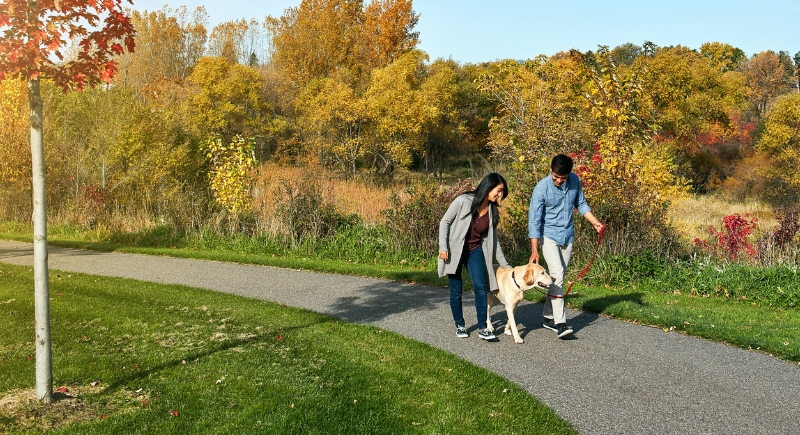This One Daily Habit Could Add 10 Extra Years to Your Life
It’s not a miracle drug or a secret diet, and you don’t need fancy gear or a gym membership. Daily walking is one simple, consistent habit that has been linked to longer lives across hundreds of studies. The way you walk, when and where you do it, are all small choices that compound over time. Let’s unpack all the ways this one habit could help you tack on a full decade.
Walk Off Heart Attacks

Credit: pexels
A simple 30-minute daily walk cuts your heart’s workload in half. Walking has a rhythm that boosts blood circulation and eases blood pressure. Clinics worldwide confirm that consistent walking reduces heart disease and stroke risk by nearly 20%.
Outsmart Cognitive Decline

Credit: Getty Images
Studies tracked aging adults who walked about 4,000 steps daily and found that they saw 25% fewer dementia diagnoses. Bumping that up to 10,000 steps slashed it up to 50%. As each walk boosts circulation, it floods your brain with blood and fuels neuron growth. It’s the easiest no-pill cognitive therapy for sharper memory and less mental fog later in life.
Rewind Your Biological Clock

Credit: Canva
Telomeres are parts of our DNA associated with aging. One UK study found that brisk walkers had telomeres resembling those of people 16 years younger. The principle lies in faster pace, faster cellular renewal. That means every purposeful walk holds anti-aging power.
Normalize Your Blood Sugar—Take a Post-Meal Walk

Credit: pixabay
Skip riding the sugar rollercoaster. Research shows a five-minute walk after meals can reduce blood sugar spikes by 12%. Daily, that adds up and reduces diabetes risk. These short walks fit anywhere. It could be a stroll to the coffee machine or around the office block.
Strengthen Your Bones and Avoid Falls

Credit: Getty Images
As we age, bones naturally lose density. But walking helps preserve strength by gently stressing the skeleton in a way that builds resilience. Older adults who walk daily experience fewer fractures and better balance. Engaging muscles around joints also improves coordination and lowers the chance of dangerous falls—a key factor in staying mobile and independent.
Improve Your Lung Function Over Time

Credit: Getty Images
A steady walking routine encourages deeper breathing that, in turn, promotes better lung capacity. It gradually expands your chest muscles and helps your lungs use oxygen more efficiently. This is especially helpful for people who may not be able to engage in intense aerobic activity.
Boost Your Immune System Daily

Credit: pexels
Your immune cells love movement. Regular walks help circulate them more efficiently through your bloodstream, which then allows them to detect and fight off illness faster. Some research shows that those who walk at least 20 minutes daily take fewer sick days and recover quicker.
Support Digestive Health With Gentle Movement

Credit: pexels
Walking stimulates your digestive tract and helps food move more smoothly through the intestines. A post-meal stroll can prevent bloating and constipation. In older adults, especially, this light physical activity supports a healthy gut rhythm and reduces the need for medications to regulate digestion.
Ease Anxiety With a Walk Around the Block

Credit: Getty Images
Short daily walks offer a mental reset. The act of moving helps regulate cortisol, the stress hormone, and releases endorphins that improve mood. The change in scenery is also proven to help calm the mind.
Support a Healthy Weight Through Routine Steps

Credit: Scopio Images
You don’t really need a strict diet or an intense workout to manage weight. Walking can do the job. It helps you burn calories gradually while boosting your metabolism. Over weeks and months, those routine steps add up to real energy expenditure. Combined with stable eating habits, walking helps prevent weight gain more sustainably.
Increased Energy Levels

Credit: Getty Images
Counterintuitively, as many might see it, regular walking actually boosts your overall energy throughout the day and helps combat feelings of fatigue. The consistent physical activity improves the efficiency of your body’s energy production processes.
Build Better Sleep Through Daylight Movement

Credit: Getty Images
The energy walking gives you makes it easier to wind down at night. Morning or afternoon walks, in particular, help regulate your internal clock. That means more restful and restorative sleep.
Reduced Chronic Pain

Credit: pixelshot
Benefits of walking extend to reducing various forms of chronic discomfort. It helps release natural pain-relieving endorphins and improves blood circulation to muscles and tissues, which then contribute to a general reduction in chronic aches and pains throughout the body.
Lower Inflammation

Credit: Canva
Chronic, low-grade inflammation is a silent driver of many age-related diseases, including heart disease, certain cancers, and neurodegenerative conditions. Regular, moderate walking acts as an anti-inflammatory agent that helps reduce systemic inflammation throughout your body, thereby protecting your cells and organs and supporting a healthier, longer lifespan.
Greater Independence and Enhanced Quality of Life in Later Years

Credit: Syda Productions
The cumulative effect of daily walking is profound on your overall independence and quality of life as you age. By maintaining physical function, strength, balance, and cognitive sharpness, walking allows you to continue performing daily tasks, pursue hobbies, and participate in social activities.